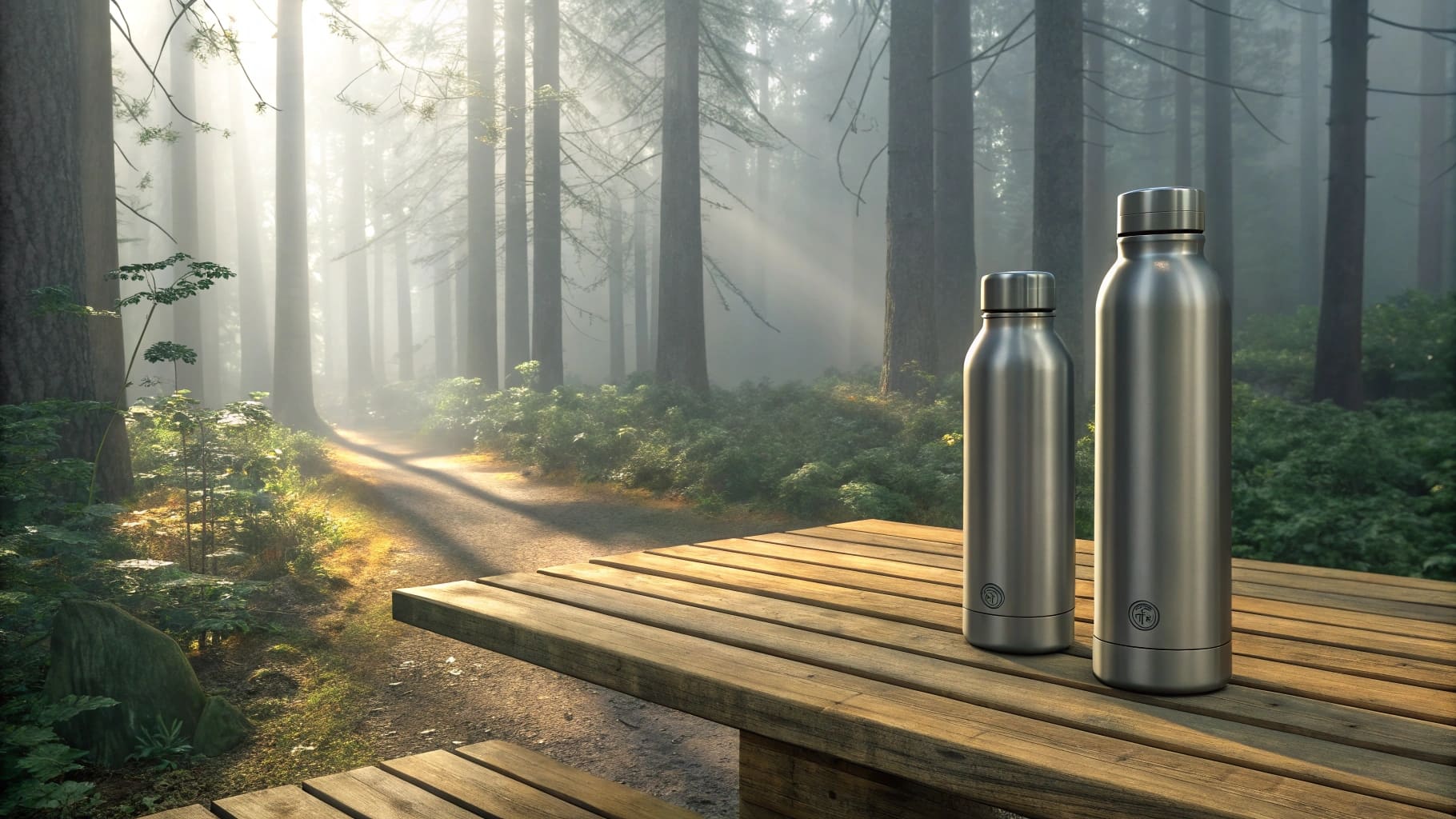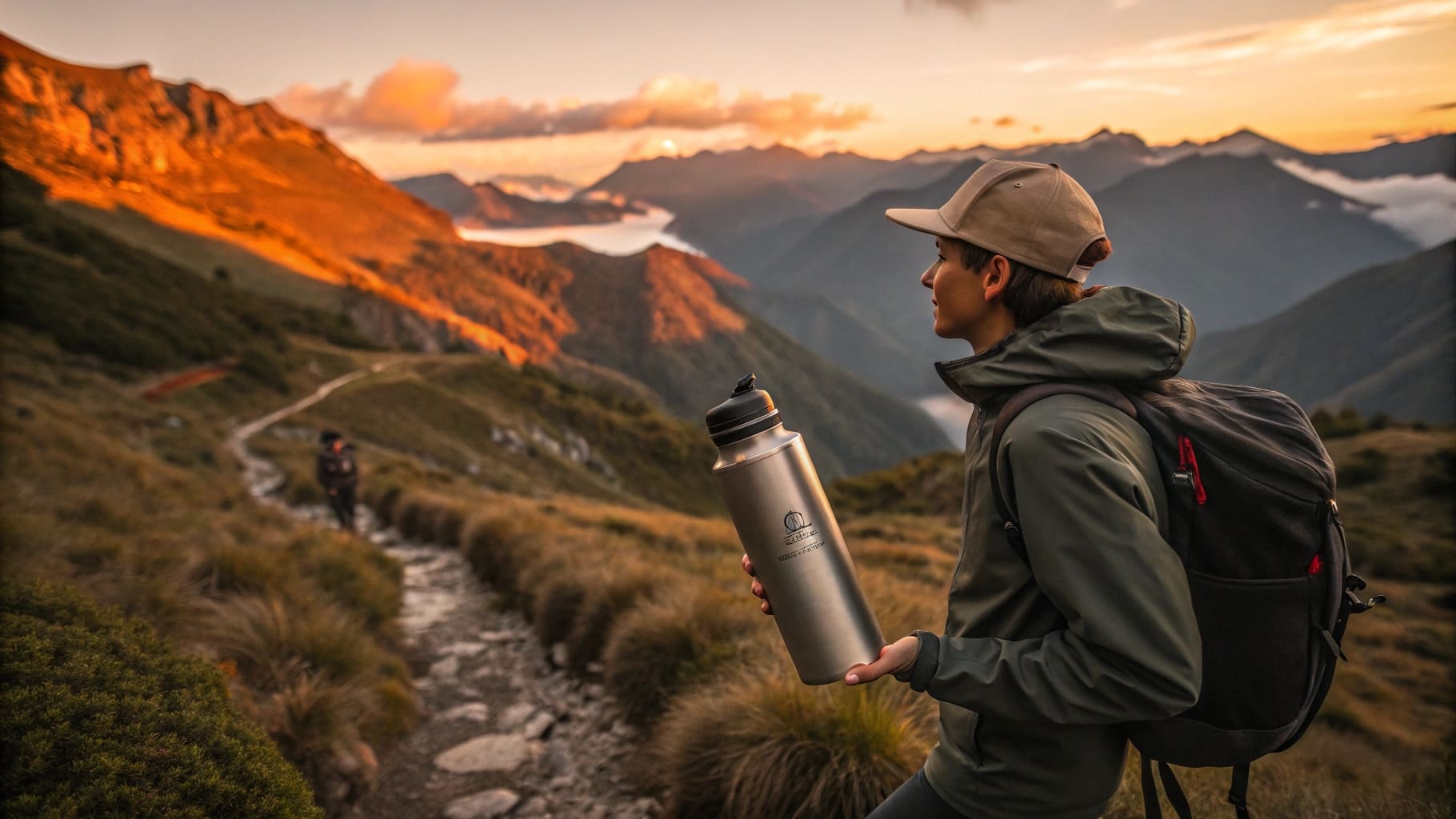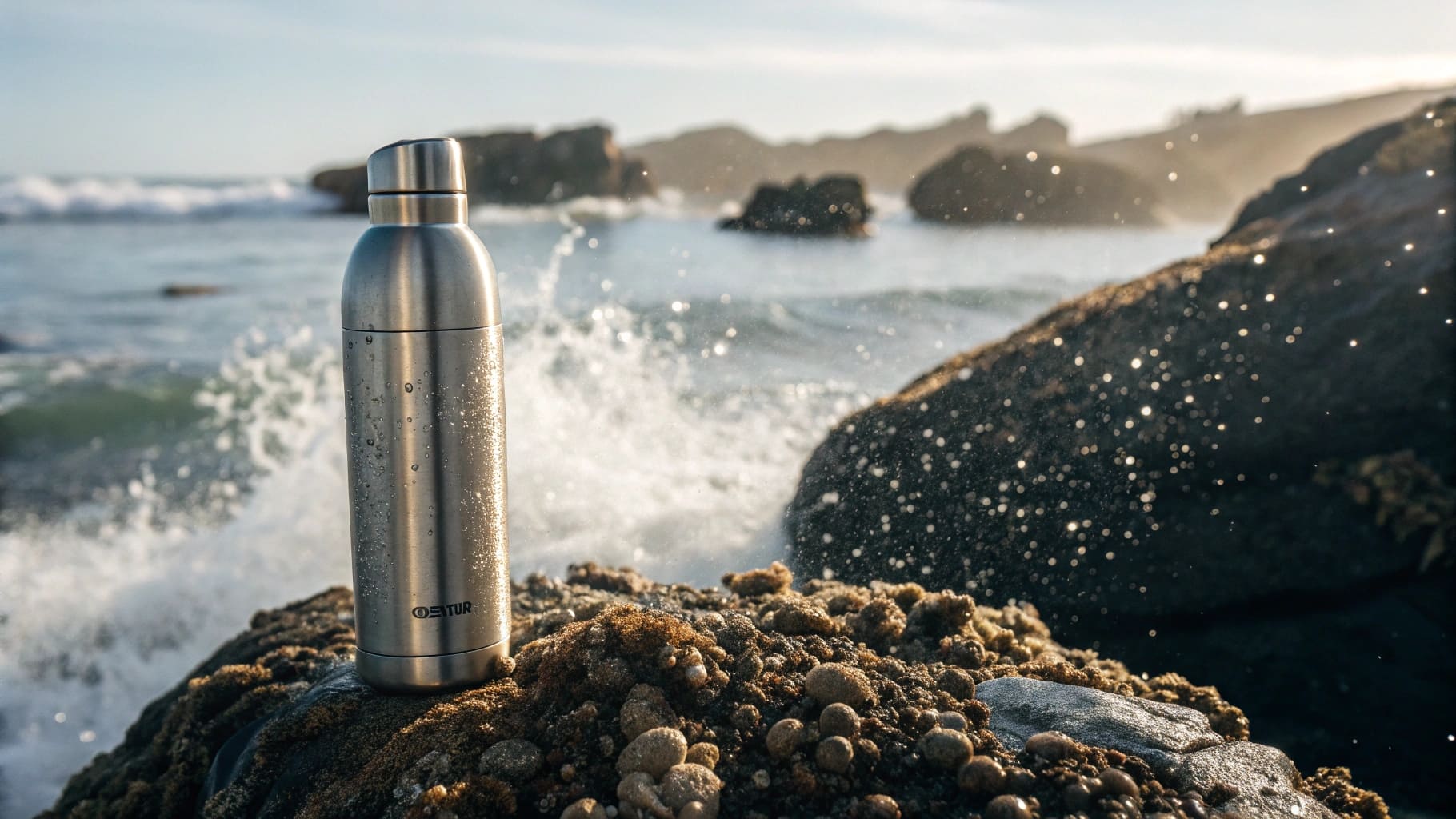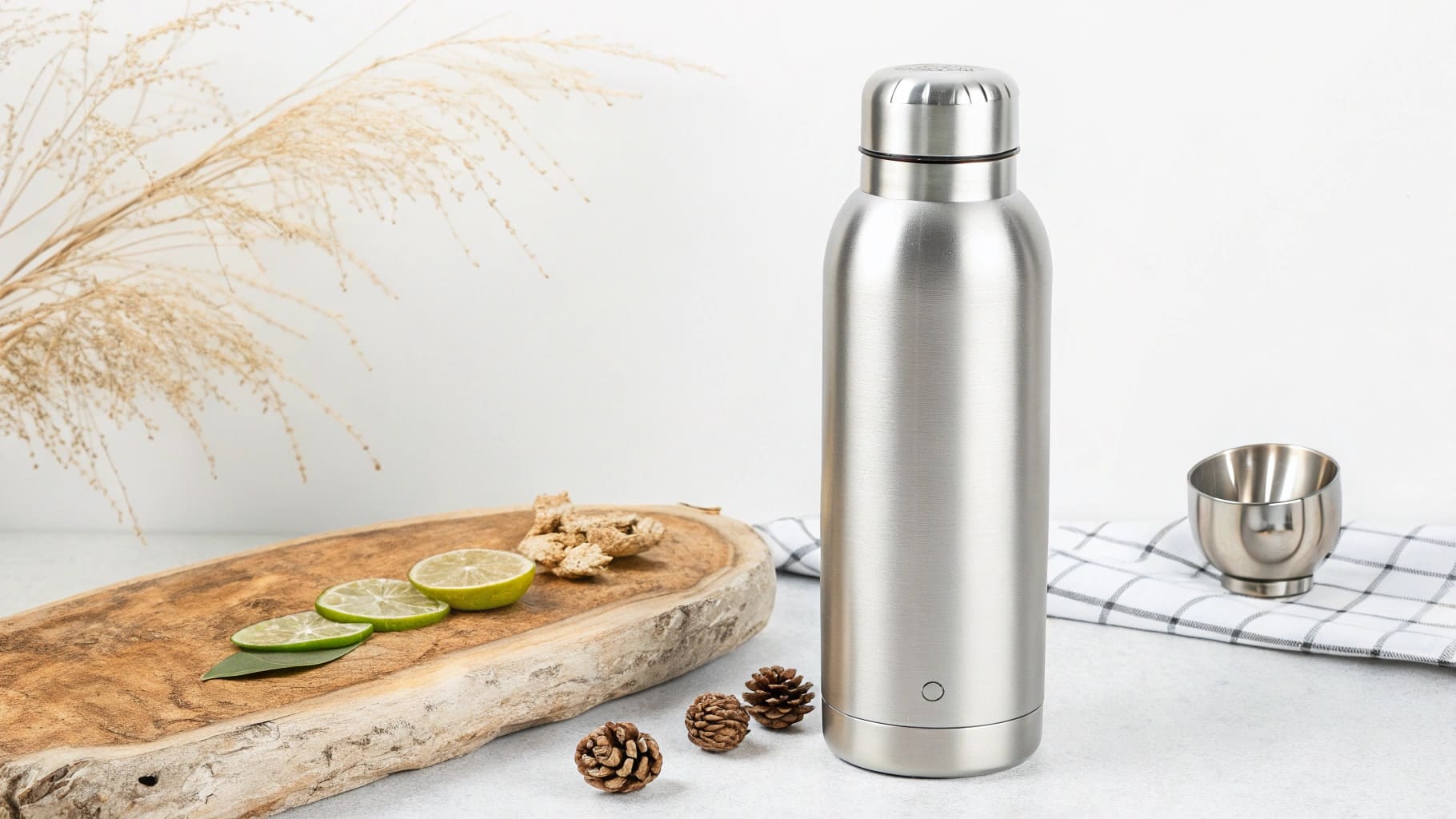Are you struggling to find top-quality insulated bottles? The choices can be overwhelming, and you might worry about quality. I am here to help you find the best for your business in 2025.
The best insulated water bottles of 2025 combine superior materials like 304 or 316 stainless steel, excellent vacuum insulation for temperature retention, and customizable features. They meet safety standards and are the right fit for your specific market needs.

Now you know what makes a great insulated water bottle. But as a business buyer, like Mark Shenng from Canada, you probably have more detailed questions. You need to source products that are high quality but also competitively priced. Let's explore some common concerns to help you make the best purchasing decisions for your company.
Who makes the best insulated water bottle?
Are you confused about finding the best manufacturers for insulated water bottles? You might fear choosing a supplier who can't deliver the consistent quality your customers expect. I will show you what to look for in a manufacturing partner.
For B2B buyers like Mark, the "best" insulated water bottle maker is not a single consumer brand. Instead, it is a manufacturing partner. This partner should offer high-grade stainless steel, consistent quality control, many customization options1, and full adherence to international safety standards.

When I talk to business owners like Mark, they often ask how to identify the top suppliers. It's not just about the bottle itself; it's about the entire partnership. You need a supplier who understands your needs for quality, especially if you're rebranding products for a premium market, like Mark does in Canada.
Identifying Top-Tier Manufacturing Partners
A top-tier manufacturing partner for insulated water bottles does more than just assemble parts. They should have a proven track record. Look for manufacturers who are transparent about their production processes. They should allow for inspections and audits. This is very important for Mark, who focuses on quality inspection. Good communication is also key. Mark has faced issues with inefficient communication, so a responsive and clear supplier is a must. The best partners act as an extension of your business. They help you avoid problems like delayed shipments, which can cause you to miss peak sales seasons.
Material Matters: Beyond Basic Steel
The quality of an insulated water bottle starts with its materials. For B2B buyers, focusing on high-grade stainless steel is essential. I always recommend looking for suppliers who use 304 stainless steel as a standard. For even better corrosion resistance and purity, especially if your brand targets a health-conscious audience, 316 stainless steel is a superior choice. It's what we at Icobottle often suggest for premium lines. Beyond the steel, ensure the vacuum insulation technology2 is robust. This technology is what keeps drinks hot or cold for extended periods. A good manufacturer will be able to provide data on thermal retention performance.
| Feature | Importance for B2B Buyers | What to Look For |
|---|---|---|
| Material Grade | Impacts durability, taste, and safety | 304 or 316 Stainless Steel, BPA-free plastics |
| Insulation Tech | Key for performance (hot/cold retention) | Double-wall vacuum insulation, performance data |
| Quality Control | Ensures consistency and reduces defects | Documented QC processes, third-party inspections |
| Customization | Allows for brand differentiation | Logo, color, shape, packaging options |
| Certifications | Proves compliance with safety/quality standards | FDA, LFGB, ISO 9001 |
| Communication | Prevents misunderstandings and delays | Responsive sales team, clear English proficiency |
Customization and Compliance: Key for B2B Success
For a B2B buyer like Mark, who rebrands products, customization is very important. The "best" manufacturer provides extensive customization options. This includes logo application, a wide range of colors and finishes, and even unique bottle shapes or lid designs. This flexibility allows you to create a product that stands out in your market. Equally important is compliance with international safety and material standards, such as FDA and LFGB. Reputable suppliers will readily provide certifications. Mark has faced issues with certificate fraud, so verifying these documents is a critical step. A reliable partner ensures their products are safe and meet all regulatory requirements in your target markets, like America and Europe.
What is the absolute best water bottle?
Are you searching for the "absolute best" water bottle? You might wonder if one single bottle can truly be the best for all your diverse business needs. Let's define what "best" really means for you and your customers.
The "absolute best" water bottle for B2B purposes is not a one-size-fits-all item. It is the bottle that perfectly matches your target audience's specific desires. This includes thermal performance, volume capacity, innovative lid designs, and overall aesthetic appeal.

When I discuss this with importers, I emphasize that "best" is subjective and market-dependent. For Mark, the "best" bottle is one that his Canadian customers will see as premium, allowing him to distribute it effectively after rebranding. It’s about fitting his business model.
Defining "Best" in a B2B Context
From my perspective at Icobottle, serving B2B clients like procurement officers or startup bosses, the "absolute best" water bottle is the one that best serves your business goals. This means it’s not about chasing the latest consumer trend. It’s about identifying what features and quality level your target market values most. For Mark, this means a bottle that feels high-quality, looks good, and performs reliably. This perception of quality is crucial for his rebranding strategy in Canada. The "best" bottle should also offer a good margin, so he can achieve his profit goals. It's a balance between sourcing cost, features, and the price his customers are willing to pay.
Aligning Product Features with Market Demand
To find the "best" bottle, you must understand your end-users. What are their priorities?
- Thermal Retention: Do they need drinks to stay cold for 24 hours, or is 12 hours sufficient?
- Volume Capacity: Are they looking for large bottles for all-day hydration, or smaller, more portable options?
- Lid Design: Do they prefer simple screw caps, spout lids for sports, or straw lids for convenience? Maybe they want an innovative, leak-proof design.
- Aesthetics: What colors, finishes, and shapes are popular with your target audience? A sleek, minimalist design might appeal to one group, while a rugged, colorful bottle might suit another.
For Mark, whose customers expect a premium product, the "best" bottle must excel in these areas and look the part. We often help clients survey their market to pinpoint these specific preferences.
| Feature Consideration | Question for the B2B Buyer (like Mark) | Impact on "Best" Choice |
|---|---|---|
| Target Audience | Who will ultimately use this bottle? | Determines preferred style, size, and features |
| Primary Use Case | Will it be for office, gym, outdoor, or daily commute? | Influences need for durability, portability, lid type |
| Price Point | What is the retail price target for your market? | Balances features against acceptable sourcing cost |
| Brand Identity | How should the bottle reflect your (or your client's) brand? | Guides aesthetic choices, customization needs |
| Durability Needs | Does it need to withstand rough handling? | Points to material thickness, construction quality |
The Role of Innovation in "Best"
Sometimes, the "best" bottle is one that offers something new or unique. This could be an innovative lid that’s easier to clean, a new type of insulation that’s lighter, or a unique shape that’s more ergonomic. For businesses like Mark's, which rely on distributing at a premium after rebranding, unique selling features can justify a higher price point. However, innovation must be practical and valued by the end consumer. It’s not just about being different; it's about being better in a way that matters to them. I always advise clients to test new features with their target market before committing to large orders. This way, "innovation" translates to real sales.
What is the most expensive water bottle to buy?
Are you curious about the cost of high-end water bottles when sourcing? You might worry that "expensive" simply means a higher price tag without real value for your B2B needs. I will explain what factors drive higher prices from a B2B sourcing perspective.
From a B2B sourcing viewpoint, the "most expensive" water bottle isn't just about a brand name. Higher costs are due to premium materials like 316 stainless steel, complex manufacturing processes, superior insulation, innovative features, and extensive certifications. These factors ensure real value for your specific market.

For a company owner like Mark, understanding these cost drivers is crucial. He needs to ensure that a higher sourcing price translates into a product that his Canadian customers will perceive as truly premium and worth the extra cost.
Understanding Cost Drivers in Premium Bottles
When sourcing insulated water bottles, several factors can increase the unit price. It's not just about a fancy logo.
First, premium materials play a big role. Using 316 medical-grade stainless steel instead of the standard 304 steel costs more. This is because 316 offers better corrosion resistance and is often preferred for its purity.
Second, complex manufacturing processes add to the cost. If you want a unique bottle shape, a very lightweight design, or intricate patterns, these require more advanced tooling and production techniques.
Third, superior and longer-lasting insulation capabilities can command a higher price. This might involve thicker walls, higher vacuum levels, or special coatings.
Fourth, innovative features like integrated water purification systems, smart technology (e.g., temperature sensors, hydration reminders), or self-cleaning mechanisms will naturally make a bottle more expensive. These features require additional components and technology. As a B2B buyer, Mark must weigh if these features provide enough value for his target customers.
Beyond the Bottle: The Value of Certifications
For B2B buyers, especially those exporting to markets like America and Europe, certifications are not just pieces of paper; they are vital. Bottles that come with extensive third-party certifications often have a higher sourcing cost. These certifications can cover:
- Material Safety: FDA (U.S. Food and Drug Administration), LFGB (German Food and Commodities Act), BPA-free.
- Ethical Production: BSCI (Business Social Compliance Initiative), SA8000 (Social Accountability). These show that the manufacturer treats its workers fairly.
- Environmental Sustainability: Certifications related to recycled materials or sustainable manufacturing processes.
For Mark, who is sensitive to quality and has faced certificate fraud, dealing with suppliers who willingly provide and stand by legitimate certifications is key. These certifications offer peace of mind and can be a strong selling point for his rebranded products in Canada. They assure his customers of the product's safety and an ethically conscious supply chain.
| Cost Factor | Why it Increases Price | B2B Value Proposition (for Mark) |
|---|---|---|
| Premium Materials (e.g., 316 Steel) | Higher raw material cost, better performance | Enhanced durability, purity, appeals to premium segment |
| Complex Manufacturing/Design | More tooling, slower production | Unique selling proposition, brand differentiation |
| Advanced Insulation | Better technology, tighter quality control | Superior performance, justifies higher retail price |
| Innovative Features | R&D costs, additional components | Unique benefits, can attract tech-savvy or niche customers |
| Extensive Certifications | Testing fees, compliance processes | Risk reduction, quality assurance, enhanced brand reputation |
| Smaller Order Quantities | Less economy of scale in production | Flexibility, but potentially higher per-unit cost |
Translating Price to Profit for B2B Buyers
The main question for a business owner like Mark is: will a more "expensive" bottle translate into better profits? The answer is yes, if the higher cost provides a clear value proposition for his specific market. If the premium features, superior quality, or strong certifications allow him to sell the rebranded bottle at a significantly higher retail price in Canada, then the increased sourcing cost is justified. It's about the perceived value. For example, if a bottle's enhanced durability means it lasts much longer, customers may be willing to pay more. If unique selling features strongly appeal to a premium segment, this also supports a higher price. My advice is always to calculate the potential return on investment carefully. Understand your market's willingness to pay for these added benefits before committing to a higher-priced item.
Conclusion
Finding the best insulated bottles in 2025 means choosing quality partners and products that fit your market. Focus on material, innovation, and real value to succeed, just like Mark aims to.

